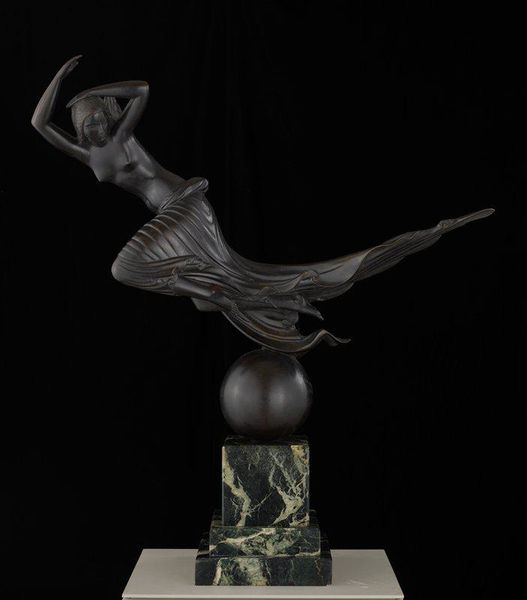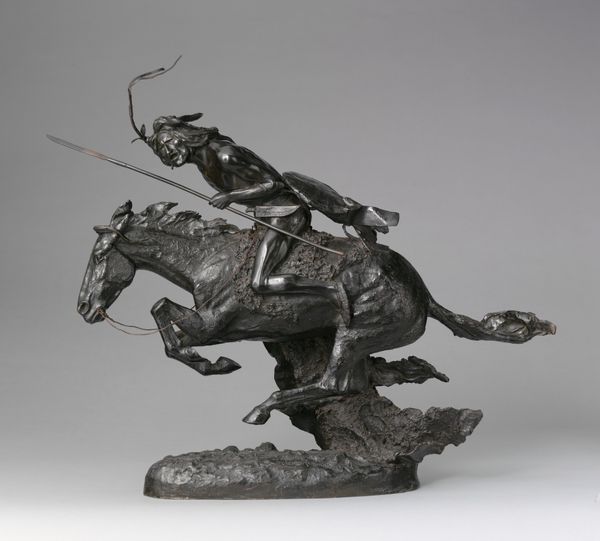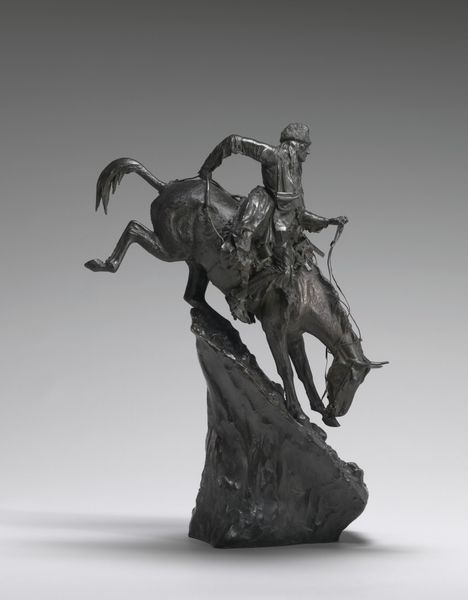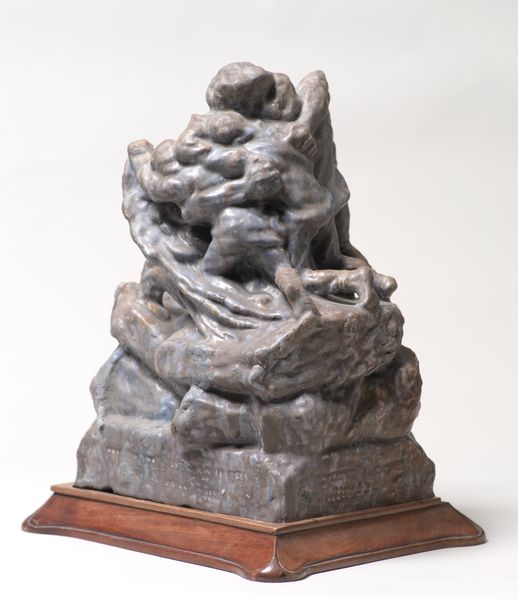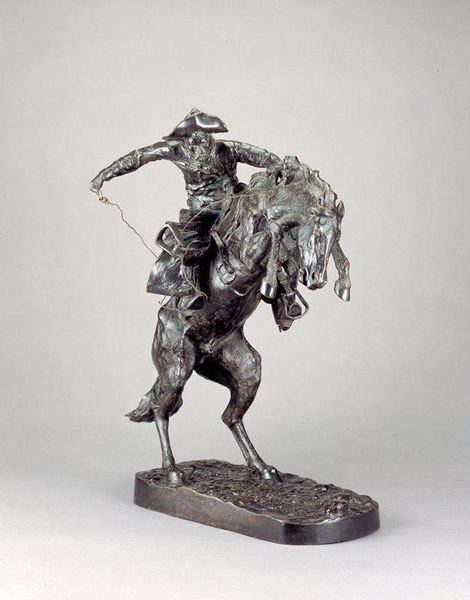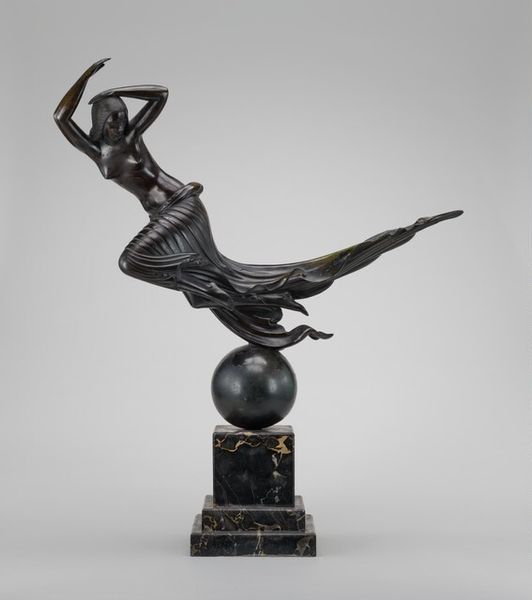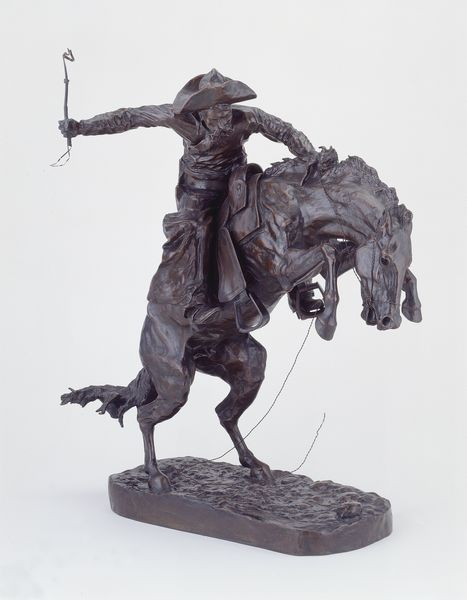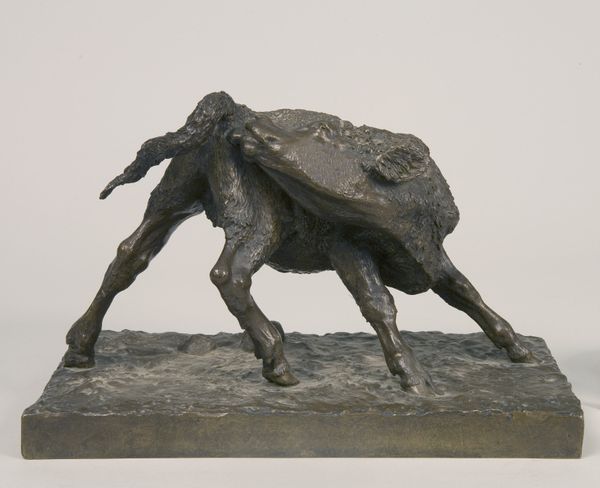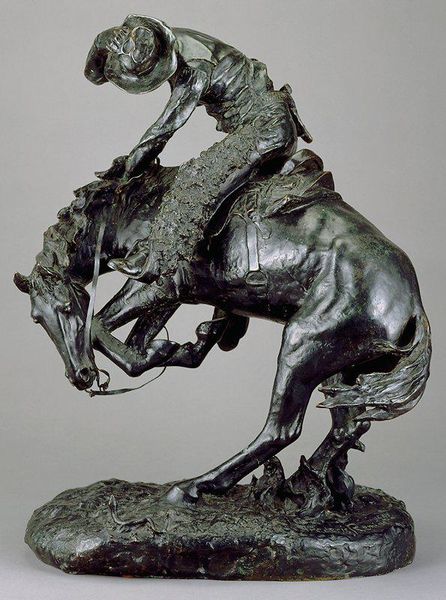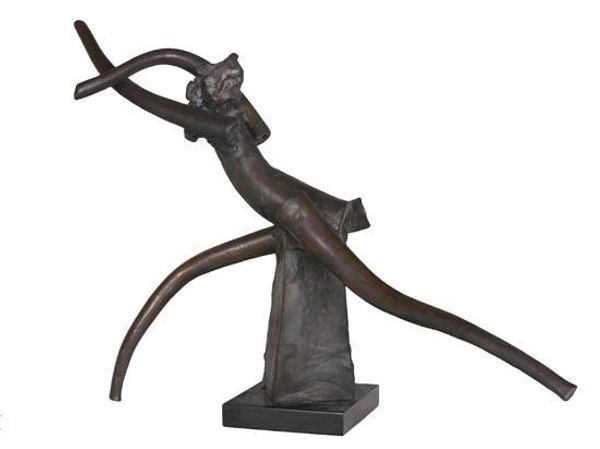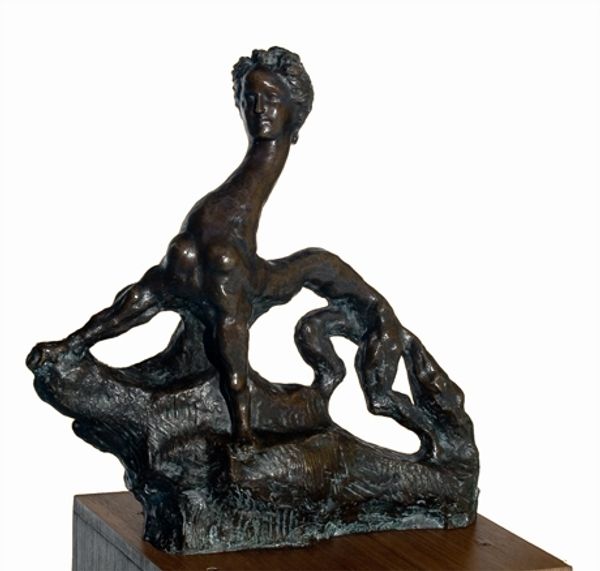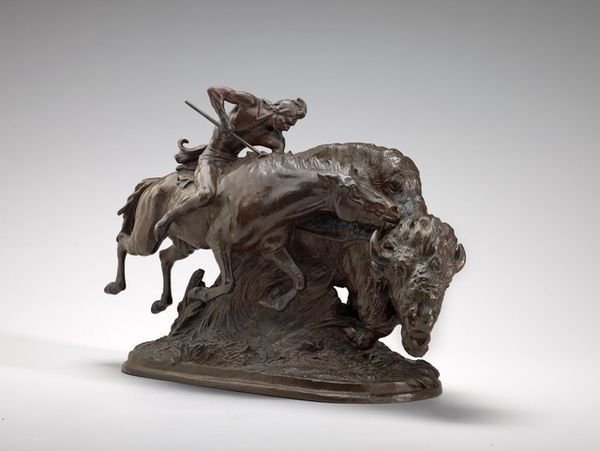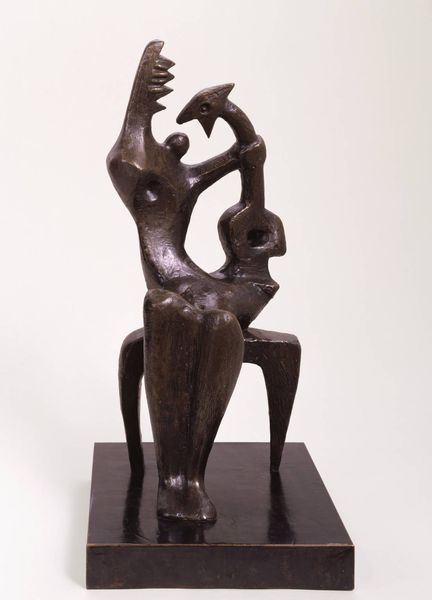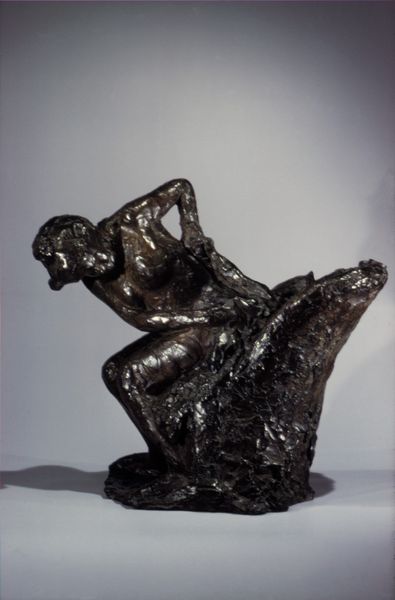
Dimensions: object: 371 x 476 x 229 mm
Copyright: © Theodore Roszak/VAGA, New York and DACS, London 2014 | CC-BY-NC-ND 4.0 DEED, Photo: Tate
Curator: Here we have Theodore Roszak's "The Unknown Political Prisoner (Defiant and Triumphant)," a bronze sculpture whose spiky form just leaps out at you. Editor: It’s fierce, almost violently so, and the scale only amplifies that sense of contained power. Those sharp angles give it a real edge. Curator: Absolutely. Roszak's use of welded metal—a medium he embraced after his earlier constructivist phase—conveys a sense of struggle and resilience. It’s like a wounded bird trying to fly. Editor: The texture alone is captivating. The rough surface catches the light in a way that accentuates its jaggedness. What is particularly striking is how the material evokes a sense of both vulnerability and strength. Curator: It makes me think about how we, as humans, react to oppression. Maybe we become a little more fierce ourselves. Editor: It is thought-provoking, and its physical presence really embodies the complexity of political resistance.
Comments
tate 10 months ago
⋮
http://www.tate.org.uk/art/artworks/roszak-the-unknown-political-prisoner-defiant-and-triumphant-n06163
Join the conversation
Join millions of artists and users on Artera today and experience the ultimate creative platform.
tate 10 months ago
⋮
This maquette was made for an international competition on the subject of 'The Unknown Political Prisoner'. The competition was designed to promote interest in contemporary sculpture as well as 'to commemorate all those unknown men and women who in our time have been deprived of their lives or their liberty in the cause of human freedom'. The artist wrote about this work: 'in thinking about the forms for the maquette, I was strongly motivated by the moral and social values implicit in the subject. In this instance, I envisioned the individual as politically committed either by accident or design against tyranny and oppression.' However, he depicted the individual as ultimately triumphant against this oppression. Gallery label, August 2004
